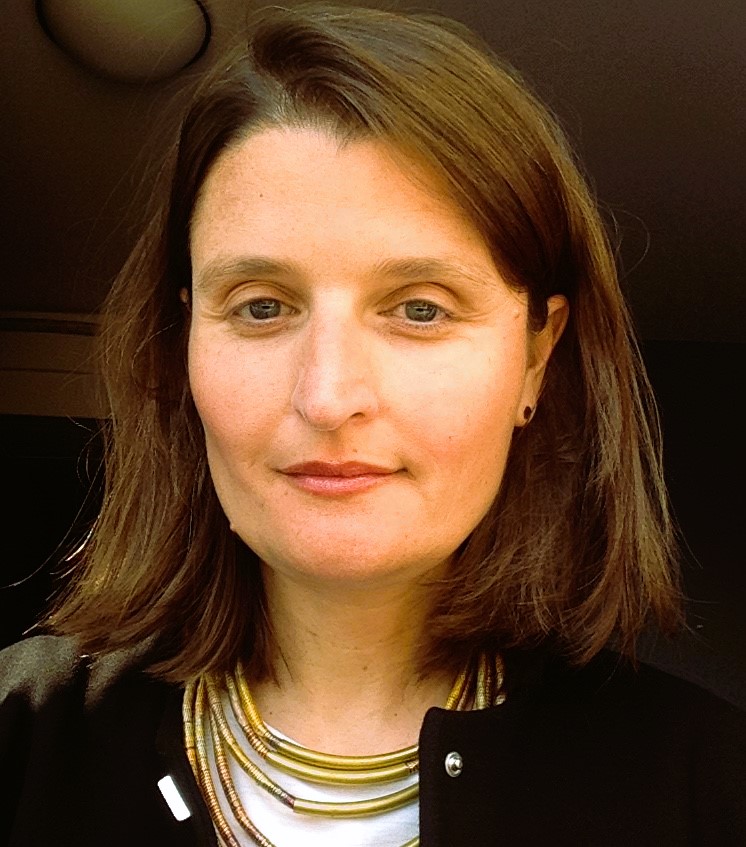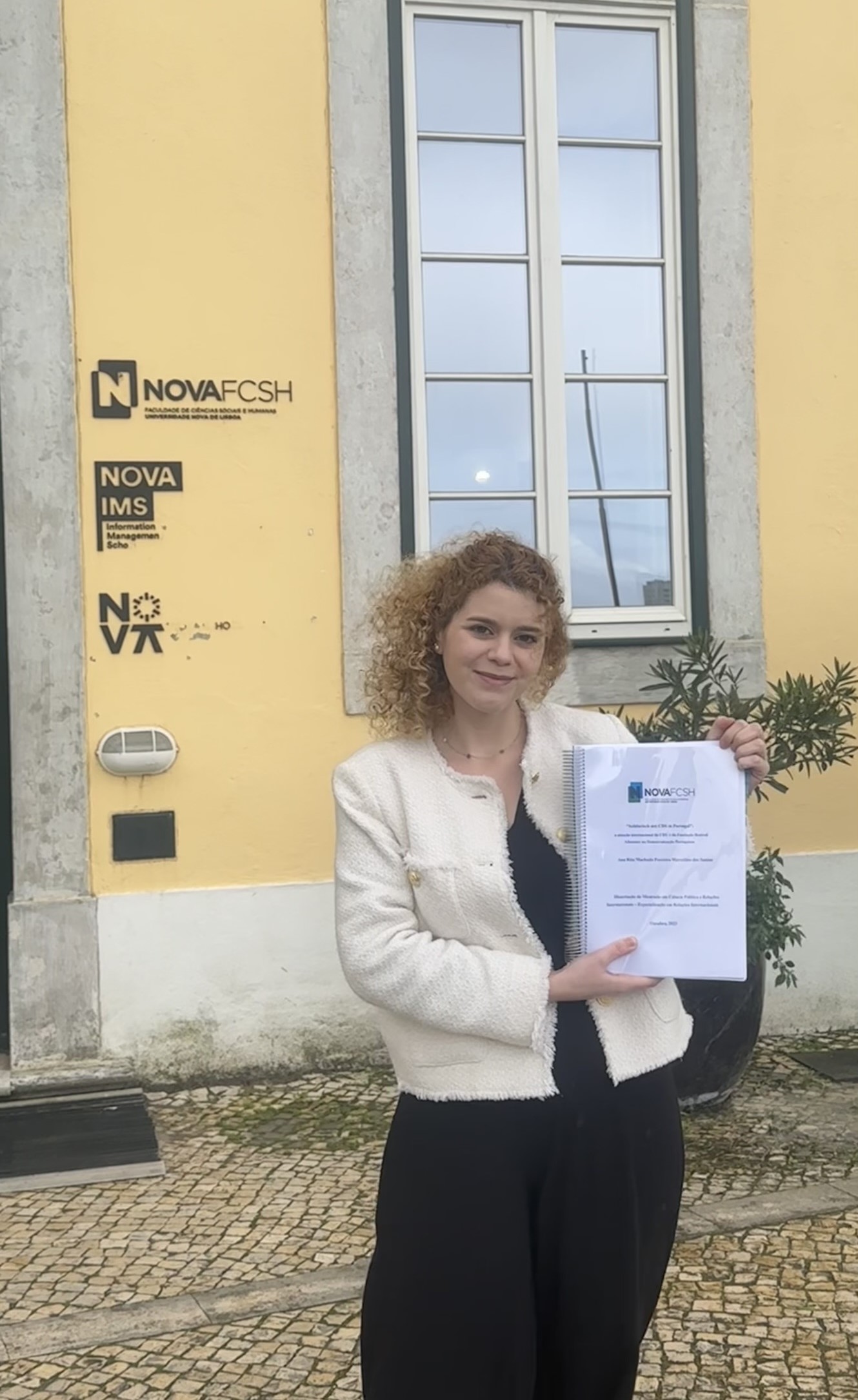FLAD has selected five master’s thesis for the second phase of the FLAD Political Science Award, which rewards the student with the best master’s thesis in the areas of Political Science and International Relations with the participation in the next annual congress of the American Political Science Association (APSA), which will take place in Philadelphia, Pennsylvania, from September 5 to 8, 2024.
The objective is to award a master’s thesis that stands out for its scientific quality in the area of Political Science and International Relations, whose dissertation reveals potential for academic research in its field of study, and to give young researchers from Portuguese universities the opportunity to contact with some of the greatest political scientists in the world and to debate themes and concepts of Political Science in an international environment.
These are the five finalists:
Catarina Mantas
Institute of Political Studies of the Catholic University of Portugal
Thesis: “Who supports the Populist Radical Right? The Determinants of Vote for Chega: a Case-study of Populist Radical Right Voters in Portugal: 2019-2022″
 This dissertation analyzes who votes for Chega in three dimensions: socioeconomic profile, electoral transfer and geography of the vote, for the 2019 and 2022 legislative elections and the 2021 presidential election. Through a descriptive analysis combining exit polls and electoral data, it is concluded that, compared to the electorate in general, the Chega electorate is mostly composed of male voters, aged between 25 and 54, who have completed high school. Chega’s electorate voted mostly for the PSD or abstained in previous elections, and is mainly concentrated in the south of the country.
This dissertation analyzes who votes for Chega in three dimensions: socioeconomic profile, electoral transfer and geography of the vote, for the 2019 and 2022 legislative elections and the 2021 presidential election. Through a descriptive analysis combining exit polls and electoral data, it is concluded that, compared to the electorate in general, the Chega electorate is mostly composed of male voters, aged between 25 and 54, who have completed high school. Chega’s electorate voted mostly for the PSD or abstained in previous elections, and is mainly concentrated in the south of the country.
Marta Ramilo Abrantes
Faculty of Social Sciences and Humanities of the NOVA University of Lisbon
Thesis: “ Science Diplomacy, Portugal and the European Project”
 Science diplomacy has become increasingly important in the action of States to respond to global challenges and to strengthen their power and influence through competitive advantage based on science and technology. In this work, an extensive mapping of Portuguese science diplomacy (1986-2021) was carried out, showing its development in parallel with the European project, without ever losing a global perspective. This work aims to be a contribution, not only to fine-tune Portuguese policies in this field, but above all to support European science diplomacy under construction.
Science diplomacy has become increasingly important in the action of States to respond to global challenges and to strengthen their power and influence through competitive advantage based on science and technology. In this work, an extensive mapping of Portuguese science diplomacy (1986-2021) was carried out, showing its development in parallel with the European project, without ever losing a global perspective. This work aims to be a contribution, not only to fine-tune Portuguese policies in this field, but above all to support European science diplomacy under construction.
Maria Gomes Silva
London School of Economics and Political Science
Thesis: “When Greed Exploits Grievances: A Subnational Cross-Case Analysis of the Insurgency in Cabo Delgado”
 The results of this research suggest that pre-existing ethnic tensions along the coast of Cabo Delgado were essential for the radicalization of young people in this region, bringing to light the underlying dynamics of this jihadist insurgency.
The results of this research suggest that pre-existing ethnic tensions along the coast of Cabo Delgado were essential for the radicalization of young people in this region, bringing to light the underlying dynamics of this jihadist insurgency.
Lucius Hanenberg
Faculty of Social Sciences and Humanities, NOVA University of Lisbon
Thesis: “Portuguese maritime identity: wave or tide? Comparative Study between the Estado Novo and Democracy”
 While some concepts, such as the overseas, ended up disappearing from the discourse, and others gained other contexts, such as the ocean, many remained, however, in the same narrative of a historicist vision of the grandeur of Portugal, reinforcing the imagery of the sea as a metaphor for the national version of history. In fact, regardless of whether the discourse identified in democracy varied in its tendency to justify, the narrative bases of maritime identity remained in their role of differentiating national identity.
While some concepts, such as the overseas, ended up disappearing from the discourse, and others gained other contexts, such as the ocean, many remained, however, in the same narrative of a historicist vision of the grandeur of Portugal, reinforcing the imagery of the sea as a metaphor for the national version of history. In fact, regardless of whether the discourse identified in democracy varied in its tendency to justify, the narrative bases of maritime identity remained in their role of differentiating national identity.
Rita Marcelino Santos
Faculty of Social Sciences and Humanities, NOVA University of Lisbon
Thesis: “«Solidarisch mit CDS in Portugal»: the international action of the CDU and the Konrad Adenauer Foundation in the Portuguese democratization (1974-1976)”
 This dissertation analyzes the actions and support of the Federal Republic of Germany to the formation of democracy in Portugal, examining how German political parties assisted the Social Democratic Center (CDS) with recourse to political influence, monetary and material support, and moral and doctrinal support. This assistance would prove essential to consolidate the party and was a key element during a period of high risk of outlaw.
This dissertation analyzes the actions and support of the Federal Republic of Germany to the formation of democracy in Portugal, examining how German political parties assisted the Social Democratic Center (CDS) with recourse to political influence, monetary and material support, and moral and doctrinal support. This assistance would prove essential to consolidate the party and was a key element during a period of high risk of outlaw.
Related Posts
23 de July, 2024
Inês Thomas Almeida next FLAD/Saab Visiting Professor at UMass Lowell
Musicologist, she holds a PhD in…
3 de July, 2024
B+S Bispo D. Manuel Ferreira Cabral School, from Madeira, wins Atlântico Junior Award
Students win with a project to create…



